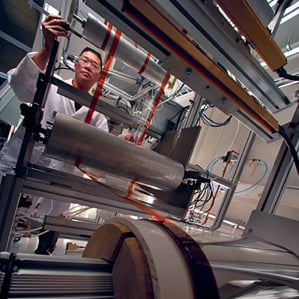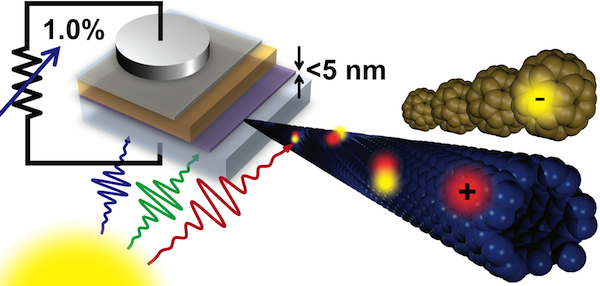This week, I am going to be discussing new advancements in solar energy that makes it more affordable and accessible. For a long time solar power has been considered the energy of the wealthy, because it has a reputation of being extremely expensive. However, these new technologies might make it possible for anyone to afford solar power.
Flexible Glass
 |
| Researcher at Corning rolling up a "spool" of Willow Glass |
Researchers at Corning, the company which produces screens for the iPhone, has made a new flexible and pliable film of glass they call Willow Glass. This new glass is very durable and unlike other materials used to make solar panels is very light weight. Scientists at the National Renewable Energy Laboratory have found a way to make these thin films of glass into small solar "shingles". These new shingles are durable enough that they could be nailed into the roof in place of current shingles.
 |
| Testing the resilience of Willow Glass |
While solar shingles have already been made out of plastic, many researchers claim that the new glass technology will be more effective because when glass is mad that thin it won't shatter like a typical pane and it will actually be more durable to the weather than other materials. The use of shingles will also decrease the cost of installation, which represents more than half of the cost of a solar energy system in general.
Willow Glass being manufactured
For more information on Willow Glass click here
Nanostructures
 |
| Rendering of Gold Nano-tube |
While some researchers, like those at Corning, are focused on making current solar panels lighter and simpler, others are focused on finding a new way to harvest the energy itself. The current system of using semi-conductors to gather energy from light is almost seventy years old. That is why researchers at University of California in Santa Barbara have studied nano-structures that releases electrons when stimulated by sunlight.
 |
| Concept sketch of energy generating nano-structures |
For more information on the nano-structure solar panels click here
Carbon Solar Panel
 |
| Small scale carbon solar panel |
Only about 60% of the light that comes from the sun is visible light. The rest is either infrared or ultraviolet. Current silicon solar panels are only capable of absorbing the visual light. That's why researchers at MIT have developed a new, carbon-based solar panel that can absorb the full spectrum of light, increasing its efficiency by two-thirds.
 |
| Electron-microscope close up of a carbon solar panel |
While it is still in development, the all carbon solar panel could eventually become the new standard in solar technology. Unlike other materials, such as gold and platinum used in the nano-structures, carbon is fairly common and relatively inexpensive to manufacture. The new material could make a solar panel that is not only more efficient, but more durable and lightweight as well.
For more information on the carbon solar panel click here
To see last week's Inspiring Technology Report click here
Don't forget to comment below and subscribe to my news feed.

No comments:
Post a Comment